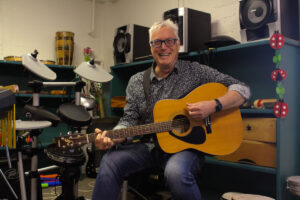Cycle lanes, a living wage, and fewer alcohol outlets
Jamie Toko has spent her life in Hamilton City Council’s West Ward, and she wants to make a difference there by becoming a councillor.
She is already a union worker and chairperson of a local community centre, but Jamie Toko has another challenge lined up.
The Nawton resident is running for Hamilton City Council’s West Ward in the 2013 elections, and she is keen to break from the “executive” image.
“I think [the council has] lost what it’s like to actually live in a suburb that needs more safety, needs more monitoring of community needs, needs more community help – although they can sit there and read about it and maybe pop out to the suburbs every now and then. But if you don’t live in it you can’t fathom it.”
Toko grew up in Melville, and has lived in Nawton for about 30 years.
The West Ward is her home, and she wants to be part of the team looking out for it.
The current ward councillors have done some great work, she says, and she has worked with several of them during her 13 years on the board for the Western Community Centre.
If Toko gets to sit in council chambers beside them, her aim will be to improve the lives of the people in the West Ward.
“They deserve to have someone on their side and I believe that I am that person.”
She has a several issues close to her heart, and road safety is at the top of the list after the recent loss of a friend who was knocked off his bike.
“I want more cycle lanes, I want more protection for cyclists, I want more protection for our children. I want the speed limit lowered.”
The Safer Speed Areas appearing around Hamilton get her approval, and more pedestrian crossings would also be great.
For example, she would love to see some in Rototuna, near the Housing NZ council homes where many elderly people live.

The living wage is another idea Toko supports.
It was a huge campaign for the Service and Food Workers’ Union (SFWU), where she works, and they were disappointed when Hamilton City Council voted against it.
“It is about bringing people up to a rate of pay where they can live in comfort rather than in poverty,” she says.
And she is sick of reading about alcohol-fuelled problems in the media – like road accidents and family violence – so she will be watching the liquor licensing process closely.
“Why is it that in some of our suburbs there is an alcohol shop on just about every corner?”
In her quest to get elected, she believes she has two major things going for her: she’s a Maori woman, and she’s a unionist.
Traditionally, there hasn’t been a lot of Maori representation on council.
She can bring that perspective.
And her mahi with the SFWU involves supporting low-income families, many of whom live in suburbs like Nawton, Melville, and Te Rapa.
The flipside is that she is used to sitting in front of executives from large organisations, and making sure her point gets across.
“I feel that I’m assertive enough to sit in council and raise [issues] and follow them through.”
Her experience as go-between for workers and employers would make bridging the gap between the council and the people it is acting for easy, she says.
“I would insist that everybody does it, but I would make sure that I do do it.”




